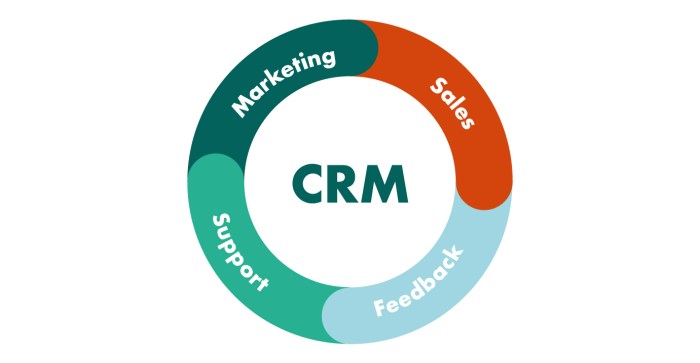Transforming Construction Excellence: A Deep Dive into CRM for Contractors
In the dynamic world of construction, where precision, communication, and client relationships are paramount, embracing technology becomes a necessity. CRM (Customer Relationship Management) solutions tailored for contractors have emerged as a game-changer, reshaping the way construction professionals manage projects, collaborate with clients, and drive business success. In this comprehensive guide, we’ll navigate through the realm of CRM for Contractors, exploring its significance, key functionalities, and how it empowers construction businesses for unparalleled success.
Chapter 1: Unveiling the Essence of CRM for Contractors
What is CRM for Contractors?
CRM for Contractors is a specialized software designed to streamline customer relationships, project management, and communication within the construction industry. This chapter delves into the foundational principles of CRM for Contractors, emphasizing its role in optimizing project workflows, managing client interactions, and enhancing overall business efficiency.
The Evolution of Construction Management
To appreciate the role of modern CRM for Contractors, we’ll take a brief historical journey through the evolution of construction management practices. From manual project tracking to digital solutions, witness the transformative shift that has reshaped the construction industry.
Chapter 2: Key Components of CRM for Contractors
Project and Task Management
Efficient project management is central to construction success. Explore how CRM for Contractors excels in project and task management, providing construction professionals with tools to plan, track, and execute projects seamlessly.
Client and Communication Management
Building strong client relationships is essential in the construction business. Learn how CRM for Contractors offers features for client and communication management, ensuring clear and timely communication with clients, subcontractors, and team members.
Document and Resource Management
Construction projects involve vast amounts of documentation and resources. Discover how CRM for Contractors streamlines document and resource management, helping teams organize blueprints, contracts, permits, and allocate resources effectively.
Chapter 3: Why Your Construction Business Needs CRM
Enhancing Project Efficiency
In the competitive construction industry, project efficiency is a key differentiator. Explore how CRM for Contractors contributes to enhancing project efficiency by providing real-time insights, automating workflows, and fostering collaboration among construction teams.
Improving Client Satisfaction
Client satisfaction is the cornerstone of a successful construction business. Discover how CRM for Contractors enhances client satisfaction by providing transparency, facilitating effective communication, and ensuring projects are delivered on time and within budget.
Streamlining Business Operations
Efficiency in business operations is crucial for construction firms. Learn how CRM for Contractors tools contribute to streamlining business operations, from estimating and bidding to project completion, and how they can enhance collaboration among team members.
Chapter 4: Choosing the Right CRM for Contractors
Assessing Your Construction Business Needs
Selecting the right CRM for Contractors starts with understanding your business requirements. This chapter guides you through the process of assessing your needs, helping you identify the specific features and functionalities that align with your construction business goals.
Exploring Popular CRM for Contractors Solutions
The market offers a variety of CRM for Contractors options, each with unique features. We’ll provide an overview of some popular solutions, discussing their strengths, weaknesses, and user feedback.
Key Considerations for Decision Making
Choosing the right CRM for Contractors is a significant decision. We’ll discuss key considerations, including scalability, integration capabilities, user interface, and cost, to ensure you make an informed choice aligned with your business objectives.
Chapter 5: Implementing CRM for Contractors Successfully
Pre-Implementation Planning
Success in implementing CRM for Contractors begins with meticulous planning. Explore the pre-implementation phase, covering aspects such as goal setting, team training, and stakeholder communication.
Configuration and Customization
Tailoring the software to fit your unique construction processes is crucial. Learn how to configure and customize your CRM for Contractors, ensuring it aligns seamlessly with your team’s workflows and project management strategies.
Integration with Existing Systems
Harmonizing the CRM with existing tools is essential for a cohesive operation. Discover how to integrate CRM for Contractors with other business applications, such as accounting software, scheduling tools, and project estimating software.
Chapter 6: Optimizing CRM for Contractors for Maximum Impact
Advanced Features and Functionality
CRM for Contractors often comes with advanced features that can elevate your business strategy. Explore tools such as analytics dashboards, mobile accessibility, and AI-driven insights to enhance your construction project management operations.
Continuous Training and Skill Development
Technology evolves, and so should your team. Learn about the importance of continuous training and skill development to ensure your team maximizes the potential of CRM for Contractors.
Monitoring and Iteration
Regularly monitoring the software’s performance is key to its success. This chapter discusses best practices for analyzing data, identifying areas for improvement, and iterating on your construction project management strategies for continuous growth.
Chapter 7: Real-World Success Stories with CRM for Contractors
Case Studies in Construction Excellence
Success stories speak louder than words. Explore real-world case studies of construction businesses that have undergone significant transformation with the implementation of CRM for Contractors solutions. Discover how these companies achieved improved project efficiency, enhanced client satisfaction, and overall business growth.
Conclusion: A Future-Ready Construction Landscape with CRM
In conclusion, CRM for Contractors isn’t just a tool; it’s a strategic asset that can redefine the way construction professionals approach project management and client relationships. By understanding its features, choosing the right CRM, and implementing best practices, construction businesses can unlock the full potential of CRM for Contractors and pave the way for a future-ready construction landscape marked by efficiency, client satisfaction, and sustained growth.
